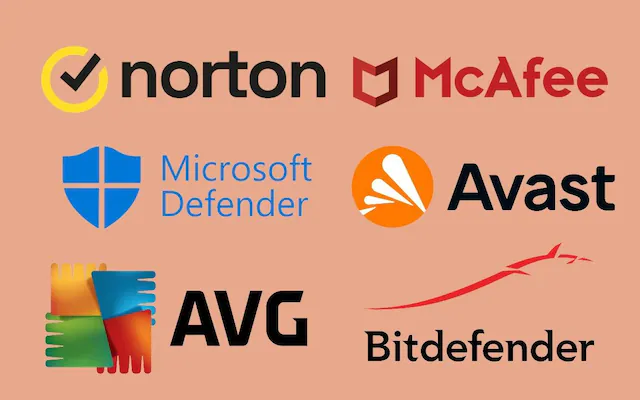The Antivirus Software That Flags Casino Apps
Last year, I went to download my casino’s app. Got it straight from their official site—double-checked the URL and everything. Hit the download button, and Windows Defender lost its mind. Big red warning: “Threat detected—potentially unwanted application.”
Wait, what? I’d been extra careful about where I downloaded it from. This wasn’t some random link from an email or a sketchy torrent site. This was their actual, verified website. Ran Malwarebytes just to be sure. Same result. Flagged as suspicious.
Cue two hours of paranoia thinking I’d somehow gotten phished despite being so careful. Googled the casino name plus “malware,” “scam,” “virus”—couldn’t find anything concrete. Eventually figured out the app was fine. My antivirus was just freaking out over nothing.
Apparently, this happens constantly with casino apps. Even when they’re completely legitimate, antivirus software flags them. Once I understood why—and learned how to spot actual threats versus false alarms—I stopped wasting hours second-guessing every download.
Why Security Software Hates Casino Apps
Antivirus programs use behavioral analysis to spot threats. The problem is, legitimate casino apps do a lot of things that look exactly like malware behavior. They handle real-money transactions (so does banking malware). They communicate constantly with remote servers (command-and-control behavior). They request permissions for location, camera, and storage (classic spyware moves). They encrypt user data (malware trying to hide its activity).
Your antivirus sees financial transactions + constant server pings + extensive permissions and thinks “this looks dangerous,” even when the app is completely legit. The algorithms can’t always tell the difference between a casino processing your deposit and malware stealing your credit card.
One of great platforms I played at is lucky wave. It is a licensed casino that offers £15,000 + 300 free spins welcome bonus across four deposits. They host 6,000+ games with £20 minimum deposits, having 2FA protection and PWA apps for both Android and iOS. Their PWA app triggered Windows Defender warnings on three different devices despite coming straight from their official domain. The app was safe—my security software just couldn’t distinguish legitimate casino functions from malware.
Verify Before You Override
Before you just hit “allow anyway” and move on with your life, actually check if the app is legit. I know it’s tempting to ignore the warning—I’ve done it plenty of times—but at least do some basic verification first.
Where did you download it from? If it came from the casino’s actual website or their official app store listing, that’s a good sign. If you clicked a link in an email or found it on some random download site, that’s… not great.
Check the SSL certificate while you’re on their site. See that little padlock icon in your browser? Click it. Make sure the certificate is valid and actually belongs to the casino. Takes two seconds.
Scroll down to the footer of their website. Legit casinos plaster their regulatory licenses down there—Malta Gaming Authority, UK Gambling Commission, Curacao, whatever. If you can’t find any licensing info anywhere, that’s a red flag.
Finally, just Google “[casino name] scam” and see what comes up. If other players have had security problems, you’ll find Reddit threads, forum complaints, and review site warnings. No results don’t necessarily mean it’s safe, but tons of scam reports definitely mean it’s not.
How to Override Safely
Once you’ve verified the app is legit, you can override the false positive. For Windows Defender, for example, open Windows Security → Virus & threat protection → Protection history → find the flagged file → Allow on device.
You can also prevent future flags by creating exceptions. In Windows Defender, it would be: Settings → Virus & threat protection → Manage settings → Add or remove exclusions → add the casino app folder.
These exceptions tell your security software to skip those specific files, stopping the repeated false positives.
Spotting Real Threats
Actual malicious casino apps do exist. Tell them apart by checking: download source (fake apps come from unofficial sites with URLs like casin0.com), licensing (no regulatory information anywhere on the site), permissions (why would a slot app need SMS access?), and VirusTotal results (multiple engines detecting threats).
False positives happen with legitimate apps from official sources with valid licenses and normal permissions. Real threats come from sketchy sources, lack licensing, and request suspicious permissions.
Mobile vs Desktop
Mobile casino apps get flagged less often than desktop versions. iOS App Store and Google Play conduct pre-screening that desktop downloads skip. Apps that pass Apple or Google’s review have already been vetted, reducing malware risk.
Desktop downloads lack that safety net. You’re downloading directly from casino servers without any intermediary review. Security software has to be more aggressive since there’s no app store screening.
Playing the popular aristocrat machine through browser-based casinos helps avoid download issues entirely. Web play eliminates antivirus conflicts since you’re not installing anything.
My Current System
Now I verify before every download. Confirm I’m on the official casino domain (check the URL carefully). Review the security certificate. Search “[casino name] app malware” for legitimate threat reports. Use VirusTotal to scan the file before installing.
If antivirus flags it, I run through verification steps. Everything checks out? Create a security exception and proceed. Verification raises concerns? Abandon the download and stick to browser-based play.






